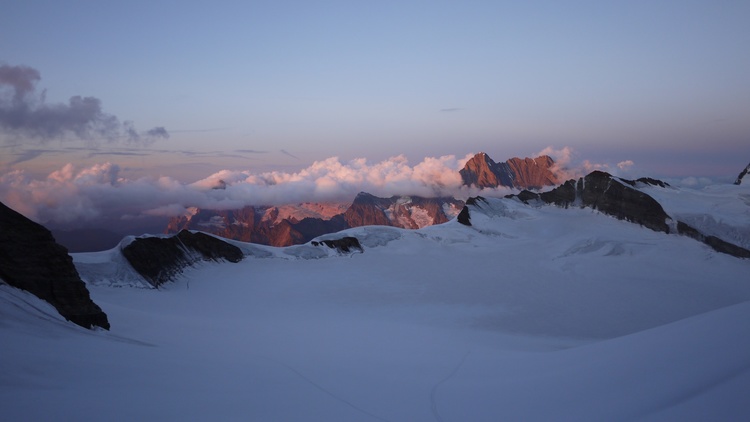I thought I'd give you a bit of context to how the camps I'm working in relate to the broader refugee crisis. Firstly a map of the route itself:
Miratovac camp is located right on the route at the border of "MACE" (Macedonia) and Serbia; Presevo is located about 20km further up the route, which is a very short distance on this map. The route was established through Serbia to Croatia once Hungary built fences and said it would arrest all refugees who came to Hungary for the international equivalent of trespassing in Autum 2015.
As the map makes clear these two camps are linchpins along the major route of migration - and that's a key reason why the two camps have handled more than 700,000 people since they opened in July 2015.
Miratovac: Official point of entry for Serbia
Miratovac (pronounced "Muhruhtoevatzz") is reached when the train from the Macedonia-Greek border camp drops refugees off at the Macedonia-Syria border. When the trains don't run, it seems (though don't quote me) to be the case that buses sometimes take over for the trains. There is a walk of about 20 minutes for the refugees from the Macedonian border to Miratovac. Once they arrive the paperwork given them by Greece and Macedonia, respectively, is checked briefly by the border police and they "officially" enter Serbia.
Miratovac provides various services - you can see postings from the blog for more information on this - and once they're ready to move on they leave Miratovac and walk for 3km to a free bus service that takes them to Presevo, about 20-30 minutes. You can see a discussion of the exploitation of Miratovac village residence posing as taxi drivers in the blog ("The Miratovac Taxi Problem").
Presevo: Registration with Serbia and other services
Pronounced "Prehshehvo," this camp is far larger and from a legal perspective where incoming refugees are officially registered with Serbia and receive what is for most of them their third "official" national document (the first two being Greek and Macedonian). It is built upon the grounds of a former tobacco factory and registration here grants them 72 hours stay in Serbia - which can be extended upon request.
The camp provides more services - including dormitories, hot showers, food, plenty of medical and other services, and for those with limited funds (many, if not most of them) a voucher worth 30 euros - very useful as the train to the Croatian border costs those over 12 15 euros.
Once they're ready to move to the train a free bus service takes them the short distance to the train station and they move to the Serbia-Croatian border.
Does anyone get refused entry?
To be fair if they were refused I wouldn't know about it; that would happen once the Serbian authorities take the paperwork we provide and process it. We do see a few people who have no prior paperwork; some of these are suspected of being from Morocco, Egypt, or other countries for which claiming asylum is difficult except in very exceptional circumstances. That said, a decision on whether or not a given refugee will, or will not, be granted asylum only happens oncethey formally claim asylum in the country they intend to settle in. According to my colleagues it is extremely rare for those we register to tell us they intend to claim asylum in Serbia.
Do many refugees have passports?
Quite a few of the Syrians - though not a majority - actually do have their passports. From my limited experience very few of the Afghani or Iranian migrants do.
You may think that this is surprising but in many rural areas of developing countries even births are not often officially registered - a majority of those we register at Presevo have no month or day of birth, just a year, for example. It is also true that robbery and exploitation by smugglers along the route to Europe passports may result in passports being stolen or lost.

